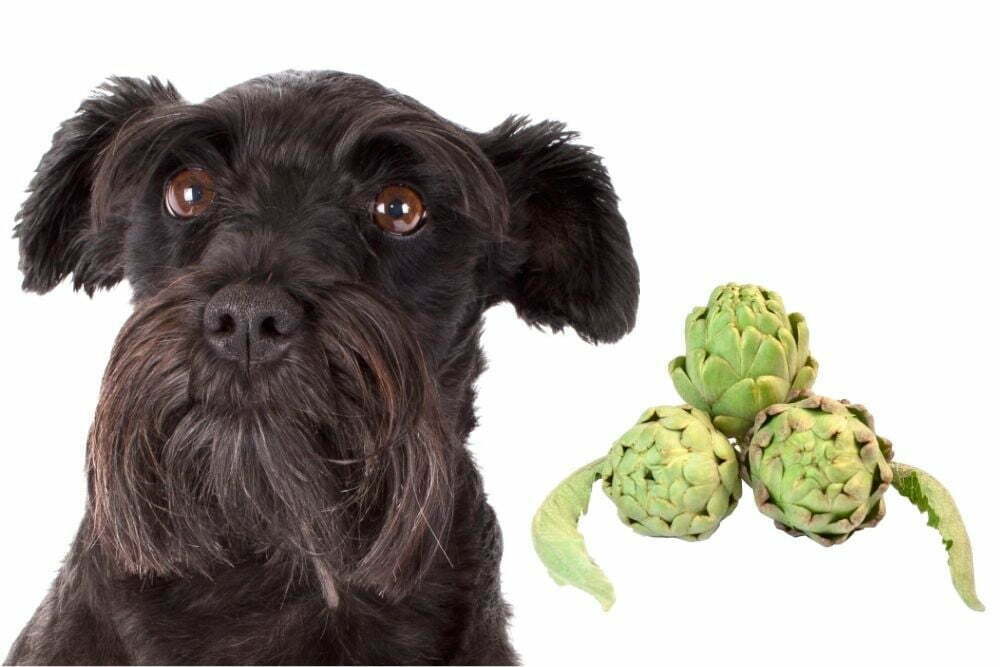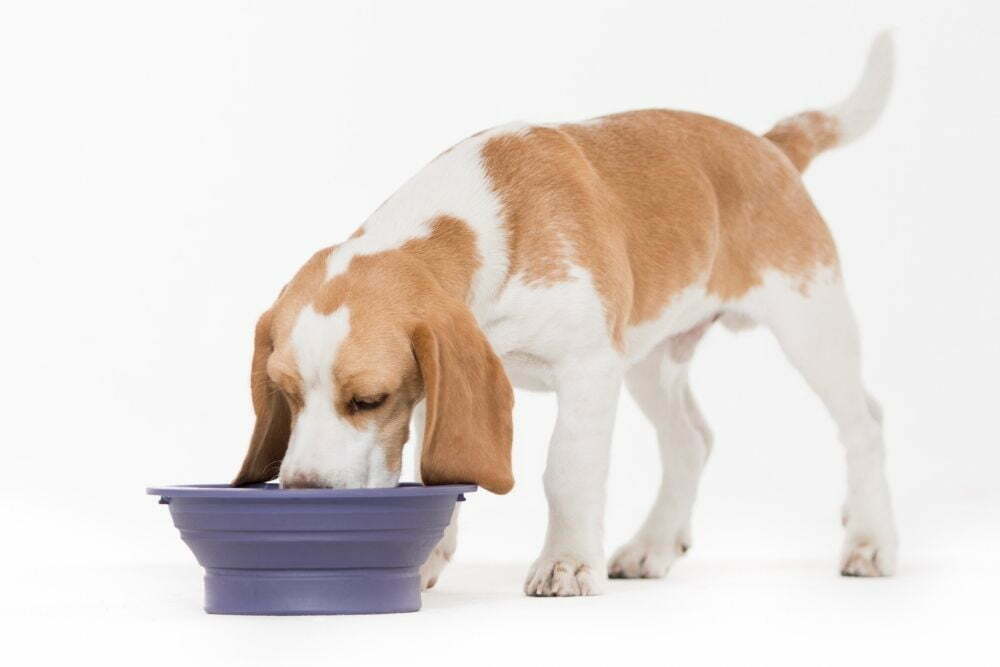My love for artichokes comes from when I was very young. My mother and father would slice the hearts and fry them and they would be crispy around the leaves and tender at the base – Jose Andres
We all want to ensure that our dogs’ lives are as long, happy, and healthy as they can possibly be, and as such, we all spend as much time as we can trying to find the right diet for them.
Our dogs can’t tell us what will and won’t improve their quality of life, even if they do try to insist via a combination of tail wagging, whining, and barking that everything would be better if they were only allowed an extra slice of pizza or the occasional candy bar, so it’s up to us to make sure that we do our utmost to ensure that their daily diet is as nutritious, delicious and healthy as it can possibly be.

Sometimes, to ensure your hound’s diet doesn’t fall down any of the typical canine rabbit holes designed to fill him full of unnecessary and unneeded empty carbohydrates, you need to step outside of the usual dog food boxes and begin to look elsewhere.
That means looking to the human dietary world for inspiration, which in turn will inevitably lead you down the path to fruit and vegetables and some rather surprising snack-based choices.
And the most shocking of all will almost certainly be the always overlooked and nearly always ignored artichoke, which seems to have undergone something of a twenty-first-century revival.
Having found out that artichokes have suddenly become a vegetable of choice for serious health food fanatics, you’ve probably started asking yourself, are they safe for my dog? Can I seriously feed artichokes to my dog? Will he like them, and are they good for him? Let’s find out, shall we…
Are Artichokes Canine Friendly?
Do you want the good news first? Of course, you do, who doesn’t prefer good news to bad? Well, in that case, we’ve got a lot of good news for you.
Yes your dog can eat artichokes, and yes they’re actually good for him, There isn’t any part of the artichoke (the heart, the base, and the leaves) that your dog can’t eat, and won’t enjoy, providing of course that he likes the taste of them, and as you probably know all too well, artichokes can be, and are an acquired taste.
Why are artichokes good for dogs? That’s a good question and the short answer is they’re good for dogs, for the same reasons that they’re good for humans, which is where we need to default to the longer, more in-depth answer to that question.
Artichokes are full of Vitamin C, which helps to boost their immune systems and keeps their coats and skin in prime condition, they have all the potassium content that your hound needs to make sure that their nervous system fires on all cylinders all of the time and are a rich source of antioxidants which can help to prevent certain types of canine cancers.
Artichokes aren’t just good for dogs, they’re GREAT for dogs.

Are Artichokes Bad For Dogs?
Anything that is seemingly as good as artichokes must also have a downside, right? Well, yes and no, and possibly.
We know that’s a little vague, but bear with us, and we’ll explain why there could be a downside to letting your dog enjoy artichokes as an alternative snack to the treats you’d usually get for him from the supermarket or the pet store.
Unlike most human food he’ll crave, the best way to serve your boy an artichoke is raw, and you shouldn’t cook it before you give it to him.
Frying artichokes absolutely obliterates their Vitamin C content and negates one of the main reasons why they’re so good for your dog, and dogs shouldn’t really eat anything that’s been fried as the oils that are used to do the frying aren’t good for them, as they’ll saturate the artichoke… You get where we’re going.
The other, and the incredibly pertinent reason why you shouldn’t fry artichokes before you feed them to your dog, is the methodology that certain recipes utilize.
Few recipes actually state that artichoke should be flash-fried by itself and usually require it to be prepared with onion or garlic, both of which are toxic to dogs, chilis, and peppers, which can cause all sorts of dietary distress and nausea or butter, which is high in fat content and is an absolute no for any dog.
It isn’t the artichoke that’s the problem, it’s the little extras that get added while they’re being prepared that can make your boy ill.
So Raw Is Good?
Raw is fine, and it’s the only way that you should let your dog eat an artichoke. It’s also the best way to ensure that your furry friend will benefit from all of the vegetables’ naturally high vitamin and antioxidant content.
It’s also worth noting that you’ll need to take a few minutes to slice an artichoke properly before you feed it to your dog so that it isn’t a choking hazard and won’t get stuck in your boy’s throat when he does eat it.
Dogs don’t exactly take their time when they’re eating anything, so it’ll be up to you to make sure that the slices are small enough for him to eat comfortably.
Artichokes And Dogs – The Final Word
The most important thing to remember if you’re going to feed artichokes to your dog is that moderation is key. A little of what he fancies every now and then is good for him, but too much can make him ill. And if he does turn his nose up at the new treat when you offer it to him, don’t worry too much.
As we said earlier, artichoke is an acquired taste, and it might take your dog a while to get used to it.
So yes, not only can your dog eat artichokes, but they’re also surprisingly good for him, provided they’re prepared properly, and he doesn’t go too crazy for the unique taste of this incredible vegetable and overeat of it. Remember, moderation is the key.
